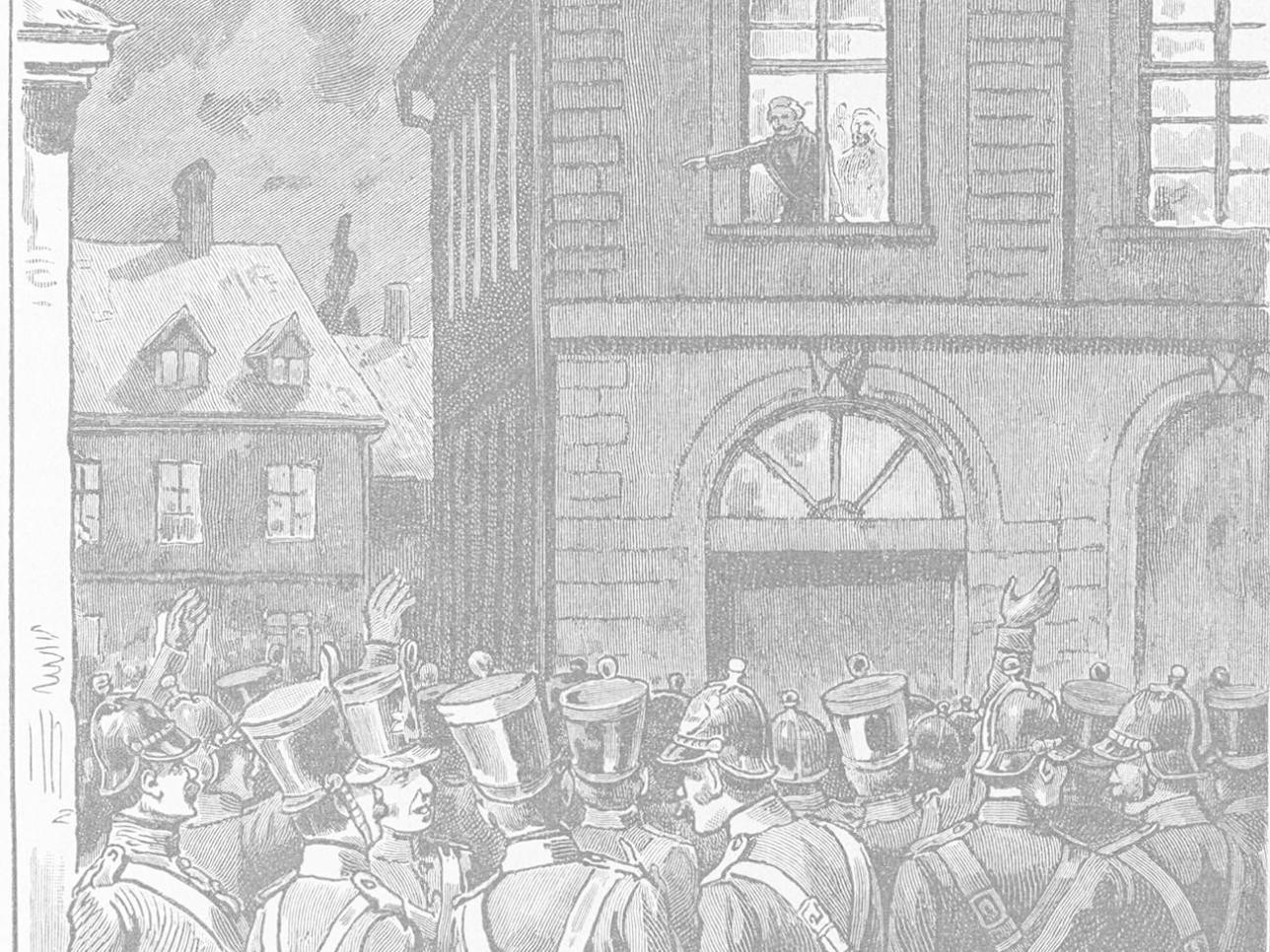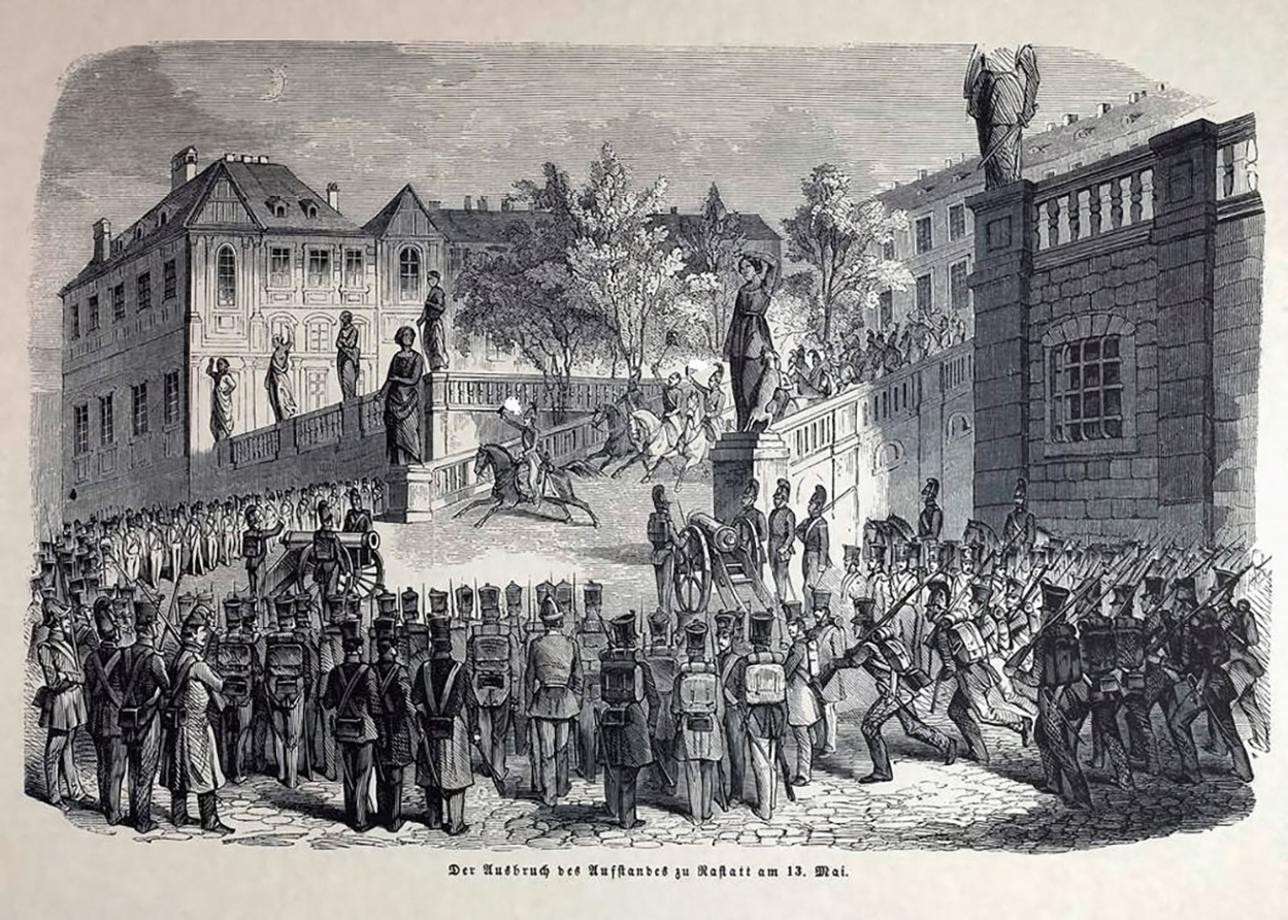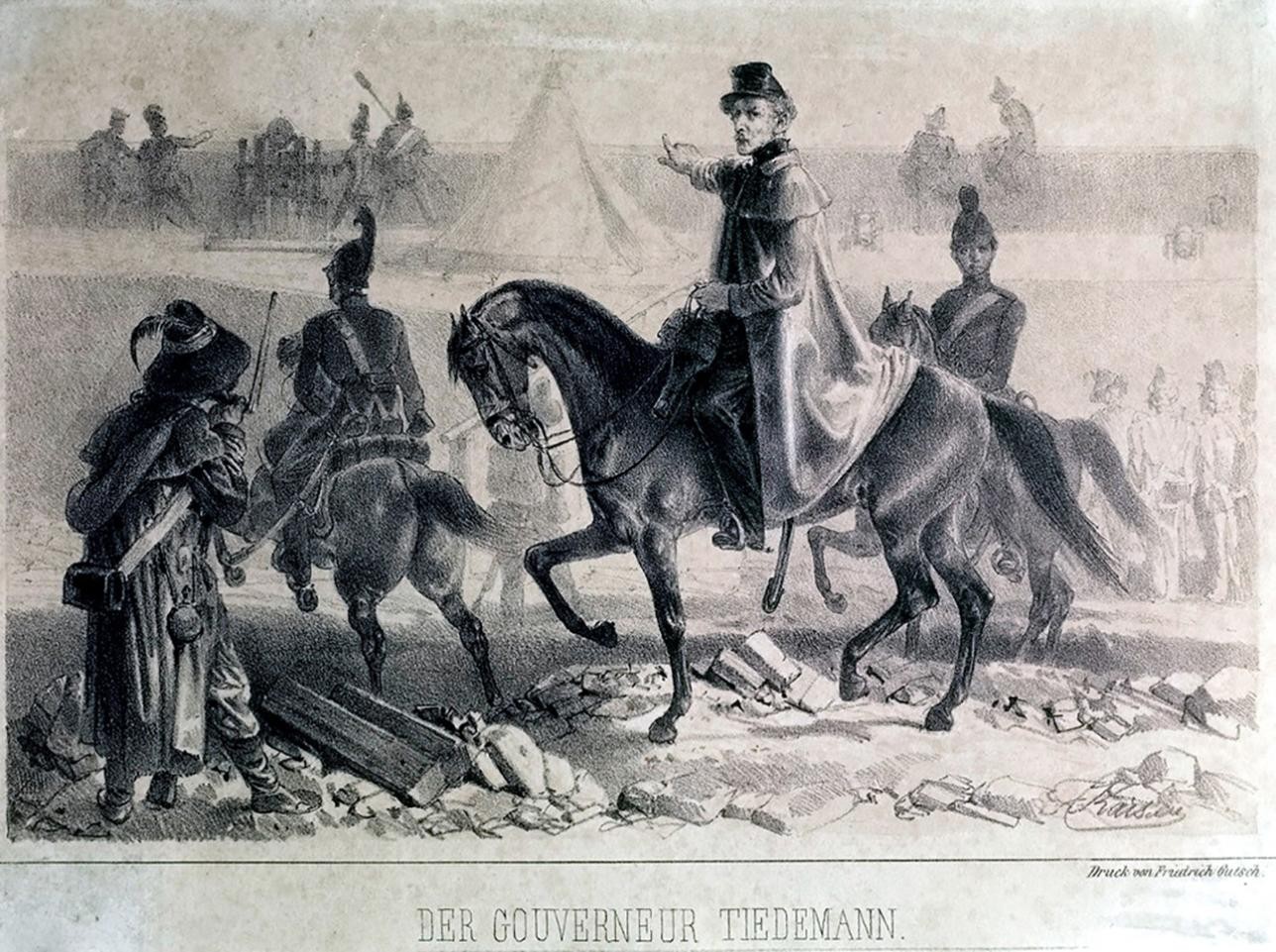By the summer of the following year, only a faint spark remained of the blazing flame of revolution that had flickered so brightly across the German-speaking countries in the spring of 1848. At the beginning of May 1849, the regular troops in Rastatt fraternized with the population to protect the Paulskirche constitution. The revolution had taken hold of the Rastatt garrison and could no longer be contained; the federal fortress was in the hands of the democrats. The fate of the revolution in Germany was decided in Rastatt in the summer of 1849.
9. May 1849
In the course of the May Uprisings of 1849, with which the people wanted to force recognition of the revolutionary achievements of the imperial constitution in individual states of the German Confederation, soldiers from the Baden garrison mutinied in the federal fortress of Rastatt. They solemnly fraternize with parts of the revolutionary militia, "swearing allegiance and love for the people".
13. May 1849
A popular assembly in Offenburg adopts a 16-point program. Among other things, it calls for the unconditional recognition of the imperial constitution and the formation of a new government under the liberal politician Lorenz Brentano. The Grand Ducal government in office rejects the demands of the Offenburg assembly.
In the evening, the revolutionary state committee of the people's associations travels to Rastatt, where revolutionary Amand Goegg proclaims the Offenburg resolutions from the balcony of the town hall and Brentano swears in the citizens' militia and soldiers to the imperial constitution.
On the same night of May 13-14, Grand Duke Leopold fled from his residence in Karlsruhe into exile in Koblenz.
25. June 1849
Battle near Durlach, in which Johann Philipp Becker's Volkswehr covers the army's retreat to the Murg Line. The revolutionary government flees to Freiburg im Breisgau and with it units of the revolutionary troops.
The Prussian commander Moritz von Hirschfeld occupies Karlsruhe.
The Polish officer and revolutionary Theophil Mniewski, who was not released by the revolutionaries during their retreat, is later sentenced to death by a Baden-Prussian court martial and shot in Rastatt on August 25.
29./June 30, 1849
Losing battles on the Murg with the battle in Gernsbach on June 29. Ludwik Mierosławski appoints Major Gustav Tiedemann from Gustav Struve's circle as governor of the Rastatt fortress.
The revolutionary units retreat to southern Baden. The Second Prussian Corps under Karl von der Groeben surrounds Rastatt.
23. July 1849
After three weeks of encirclement, the revolutionaries capitulate to the Prussian General Karl von der Groeben. The revolution has failed. Prussian General Heinrich von Holleben becomes governor of Rastatt.
The insurgents surrender the fortress of Rastatt to the Prussians. In front of the Niederbühl Gate, the Prussian troops have formed up around Prince William of Prussia, who gives a speech of praise to his troops.
The garrison of the fortress moves out of the gate in sections and silently lays down their weapons. Then everyone is immediately escorted back to the casemates and imprisoned there.
Around 5,600 officers, crew, irregulars and Volkswehr men are imprisoned in the forts under inhumane conditions after the fortress is surrendered. Around 90 people from Rastatt, including Mayor Sallinger, are also imprisoned.
The revolution is therefore considered a failure
The Baden army is disbanded and later rebuilt under Prussian command.
Many revolutionaries managed to flee into exile. Others are arrested and tried by the Prussian-Baden tribunals.
After the fall of Rastatt, the Prussian command assigned Karl Alois Fickler, the brother of the Baden agitator Joseph Fickler, to defend the accused.
The summary courts sentence 27 revolutionaries to death by firing squad (including the last fortress commander of Rastatt, Gustav Tiedemann) and impose long prison sentences in Prussian prisons on others.




